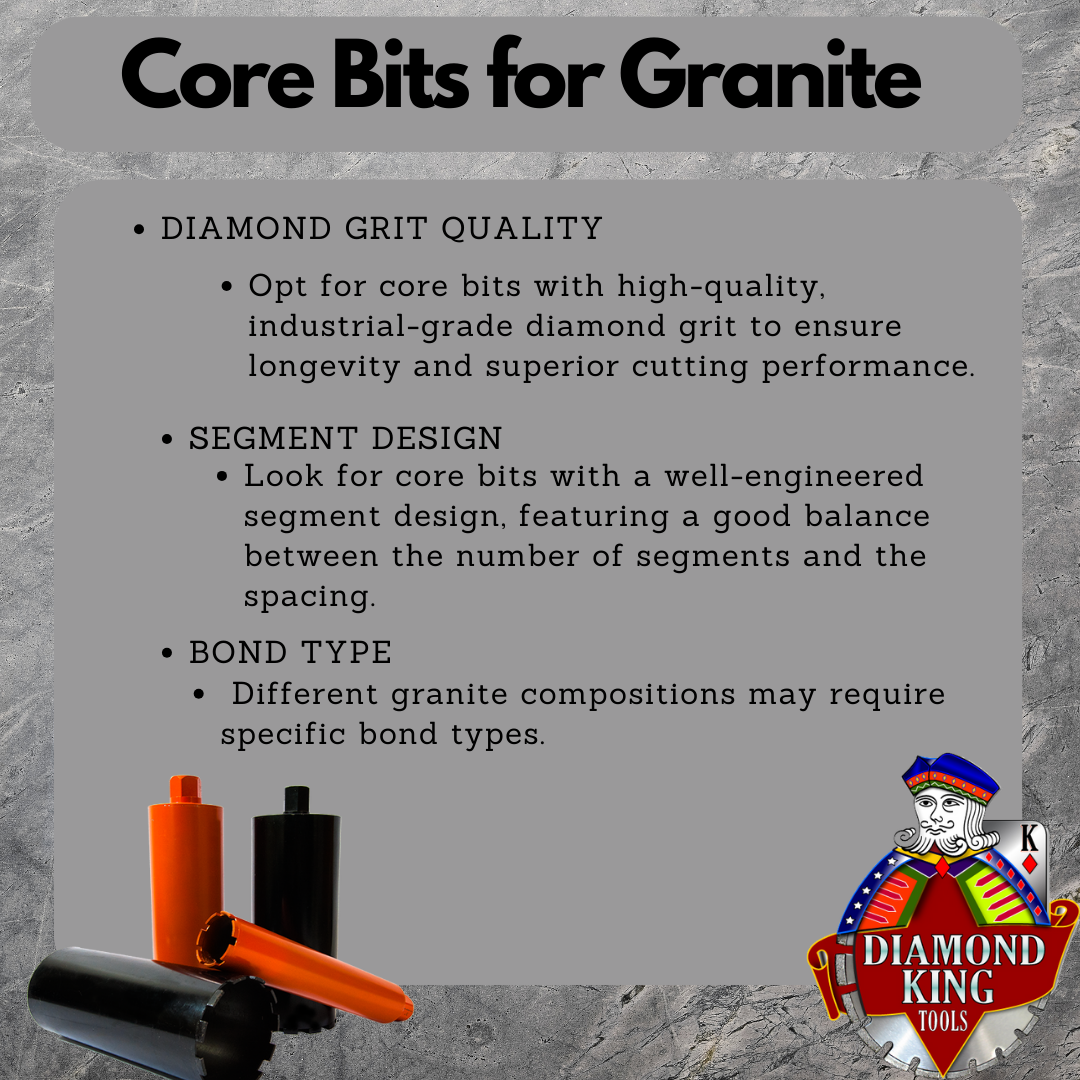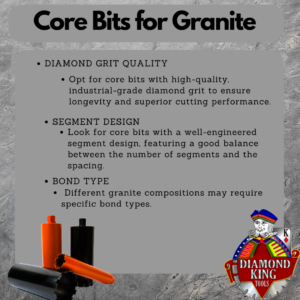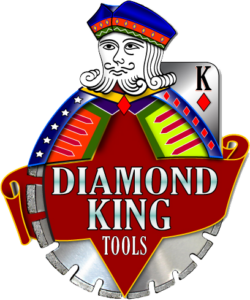Granite, renowned for its durability and aesthetic appeal, is a popular choice for countertops, flooring, and various other applications. When it comes to working with granite, using the right core bits is crucial for achieving precise and efficient results. Here are some things to think about when choosing the right core bit to use for granite.
- Diamond Grit Quality: One of the primary factors to consider when choosing core bits for granite is the quality of the diamond grit. Diamond is renowned for its hardness and durability, making it an ideal material for cutting through granite. Opt for core bits with high-quality, industrial-grade diamond grit to ensure longevity and superior cutting performance.
- Segment Design: The segment design of core bits plays a critical role in the cutting process. Segments are the individual parts of the bit that come into contact with the granite. Look for core bits with a well-engineered segment design, featuring a good balance between the number of segments and the spacing. This ensures efficient debris removal and minimizes heat buildup during cutting.
- Bond Type: The bond in a core bit is the material that holds the diamond grit together. Different granite compositions may require specific bond types. For hard and dense granites, a softer bond is preferred to allow the diamond to penetrate effectively. Conversely, softer granites may benefit from a harder bond to prevent premature wear.
- Wet vs. Dry Cutting: Consider whether you’ll be using water as a coolant during the cutting process (wet cutting) or if you prefer a dry cutting method. Wet cutting helps to control heat and prolong the life of the core bit, but it requires water sources and proper disposal systems. Dry cutting, on the other hand, offers convenience but may generate more heat, affecting both the tool and the granite.
- Bit Diameter and Length: The size of the core bit is a critical factor, and it should match the diameter and depth of the holes you intend to drill in the granite. Using the right-sized core bit ensures accuracy and efficiency in your cutting applications. Additionally, consider the length of the core bit, especially if you are working with thicker granite slabs.
- Compatibility with Equipment: Ensure that the core bits you choose are compatible with the equipment you plan to use. Different drilling machines may require specific shank types or connection mechanisms. Confirm that the core bits you select are suitable for your equipment to avoid compatibility issues.
- Manufacturer Reputation: Finally, consider the reputation of the manufacturer. Reputable brands are more likely to produce high-quality core bits that meet industry standards. Reading customer reviews and seeking recommendations can provide insights into the performance and durability of a particular brand’s core bits.
Selecting the right core bits for granite involves a careful evaluation of diamond grit quality, segment design, bond type, cutting method, size, compatibility, and manufacturer reputation. By paying attention to these key considerations, you’ll be better equipped to choose the right core bit to use for granite.



